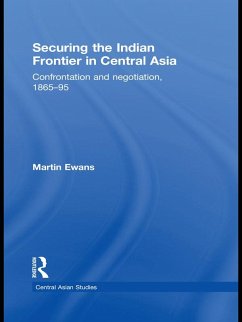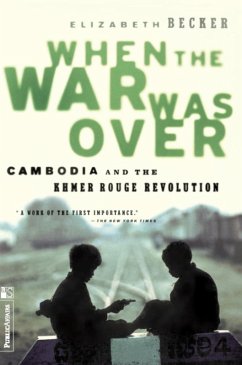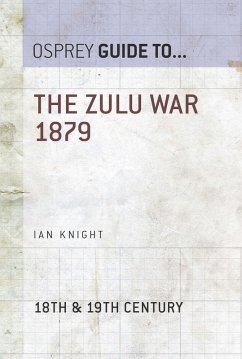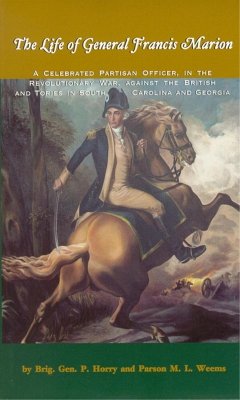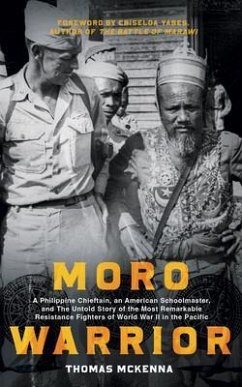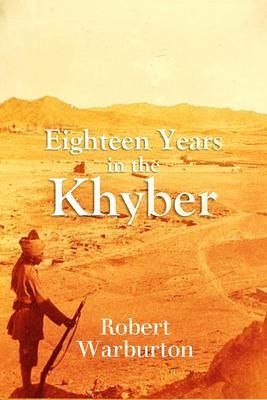
Eighteen Years in the Khyber 1879-1898 (eBook, ePUB)

PAYBACK Punkte
2 °P sammeln!
"Warburton...moved among these warring and bloodthirsty tribes as a friend as well as a ruler." -Saturday Review, 1900"Warburton became warden of the Khyber Pass from 1879 to 1898...might have been the man to find Osama bin Laden." -Evening Standard (London), Nov. 15, 2001"Warburton...kept the Khyber open without a single European soldier or sepoy being stationed in it." -Pall Mall Gazette (London), Feb. 8, 1900 "An excellent exposition of the art of managing frontier tribes." -Quarterly Review, 1900 Called "the most dangerous place in the world" how did British officer Warburton manage to kee...
"Warburton...moved among these warring and bloodthirsty tribes as a friend as well as a ruler." -Saturday Review, 1900
"Warburton became warden of the Khyber Pass from 1879 to 1898...might have been the man to find Osama bin Laden." -Evening Standard (London), Nov. 15, 2001
"Warburton...kept the Khyber open without a single European soldier or sepoy being stationed in it." -Pall Mall Gazette (London), Feb. 8, 1900
"An excellent exposition of the art of managing frontier tribes." -Quarterly Review, 1900
Called "the most dangerous place in the world" how did British officer Warburton manage to keep open the ancient gateway between Pakistan and Afghanistan known as the Khyber Pass, later to be the scene of a massacre of a 16,000-strong Anglo-Indian expeditionary force retreating from Kabul?
Appointed political officer of the Khyber Pass in 1879, it was Sir Robert Warburton's task to ensure the Khyber Pass remained passable. As detailed in his 1900 posthumously published book "Eighteen Years in the Khyber," to a unique extent he won the confidence and the affection of the tribesmen, obtained an ascendency in their councils and traversed alone in fearless security a territory which a few years before no European could enter.
In introducing the book of the recently deceased author, a note to the reader states:
"Marvellous mental activity and a firm, powerful will had helped to sustain the well-knit but slender frame of ROBERT WARBURTON through nearly thirty-seven years of Indian service, the latter half of which was passed in the almost daily worry, care, and anxiety inseparable from the guardianship of the important post which had been intrusted to his charge-that of the famous and once-dreaded Khyber Pass. How well he fulfilled that trust is on official record, and will have its lasting place in the history of British rule in India. These pages give in his own simple language the modest story during years of lonely exile, of duty done under many difficulties, and often under many depressing influences."
About the author:
Colonel Sir Robert Warburton was born July 11, 1842, and died April 22, 1899, shortly before his book "Eighteen Years in the Khyber" was published in 1900. He was an Anglo-Indian soldier and administrator. Half-Afghan and proficient in Pashtu, he served for many years as British political officer in charge of the Khyber Pass, a region of strategic importance to British India. He helped maintain peace with the Afridis who rose in revolt eighteen years after his retirement.
"Warburton became warden of the Khyber Pass from 1879 to 1898...might have been the man to find Osama bin Laden." -Evening Standard (London), Nov. 15, 2001
"Warburton...kept the Khyber open without a single European soldier or sepoy being stationed in it." -Pall Mall Gazette (London), Feb. 8, 1900
"An excellent exposition of the art of managing frontier tribes." -Quarterly Review, 1900
Called "the most dangerous place in the world" how did British officer Warburton manage to keep open the ancient gateway between Pakistan and Afghanistan known as the Khyber Pass, later to be the scene of a massacre of a 16,000-strong Anglo-Indian expeditionary force retreating from Kabul?
Appointed political officer of the Khyber Pass in 1879, it was Sir Robert Warburton's task to ensure the Khyber Pass remained passable. As detailed in his 1900 posthumously published book "Eighteen Years in the Khyber," to a unique extent he won the confidence and the affection of the tribesmen, obtained an ascendency in their councils and traversed alone in fearless security a territory which a few years before no European could enter.
In introducing the book of the recently deceased author, a note to the reader states:
"Marvellous mental activity and a firm, powerful will had helped to sustain the well-knit but slender frame of ROBERT WARBURTON through nearly thirty-seven years of Indian service, the latter half of which was passed in the almost daily worry, care, and anxiety inseparable from the guardianship of the important post which had been intrusted to his charge-that of the famous and once-dreaded Khyber Pass. How well he fulfilled that trust is on official record, and will have its lasting place in the history of British rule in India. These pages give in his own simple language the modest story during years of lonely exile, of duty done under many difficulties, and often under many depressing influences."
About the author:
Colonel Sir Robert Warburton was born July 11, 1842, and died April 22, 1899, shortly before his book "Eighteen Years in the Khyber" was published in 1900. He was an Anglo-Indian soldier and administrator. Half-Afghan and proficient in Pashtu, he served for many years as British political officer in charge of the Khyber Pass, a region of strategic importance to British India. He helped maintain peace with the Afridis who rose in revolt eighteen years after his retirement.
Dieser Download kann aus rechtlichen Gründen nur mit Rechnungsadresse in A, D ausgeliefert werden.





